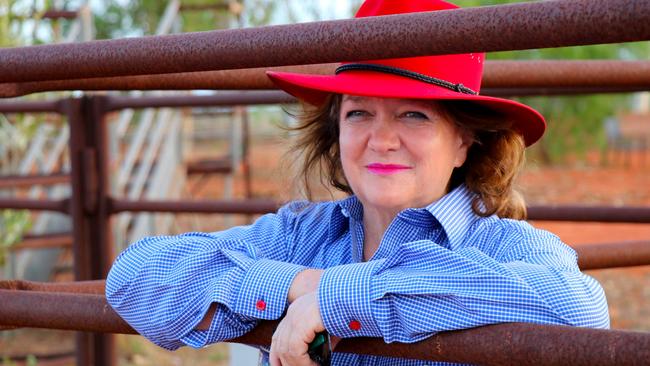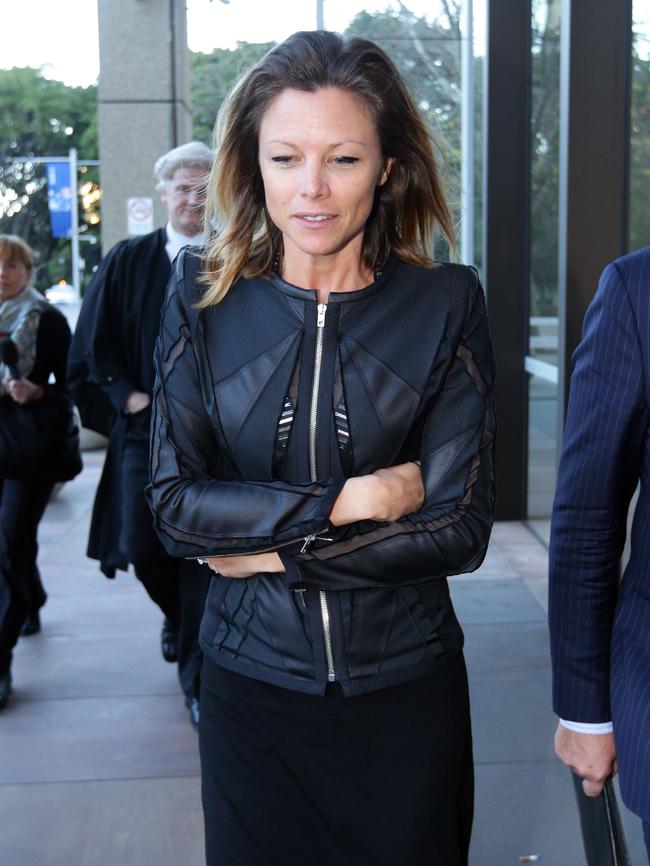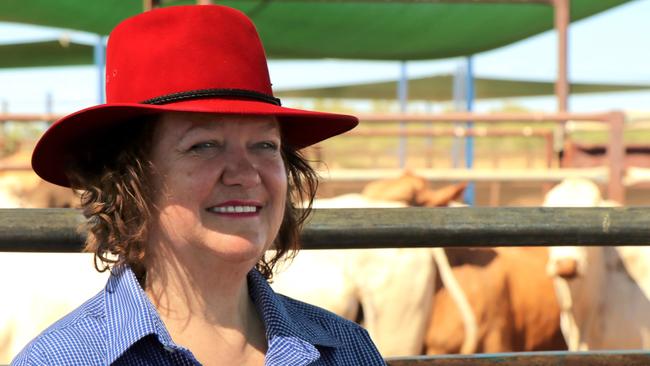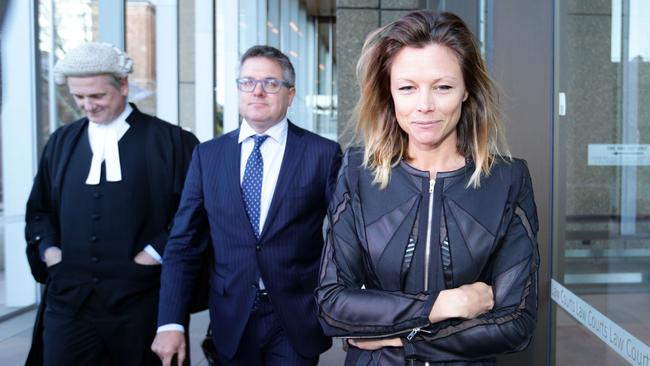Gina Rinehart wins appeal to have family trust dispute held privately
BILLIONAIRE mining magnate Gina Rinehart has won a bid to have a family trust dispute with her children heard behind closed doors.

Law & Order
Don't miss out on the headlines from Law & Order. Followed categories will be added to My News.
BILLIONAIRE mining magnate Gina Rinehart has won a bid to have a family trust dispute with her children heard behind closed doors.
An appeal, launched by Rinehart over an earlier Federal Court decision to allow two of her children, Bianca Hope Rinehart and John Langley Hancock, to take her to court in a public trial was today overruled.
More: Gina’s daughter allowed to sue her mum
The decision is another step in the long-running spat over the childrens’ entitlements to assets, including mines and dividends, worth hundreds of millions of dollars.
It comes after Rinehart — Australia’s richest woman with an estimated wealth of $17.12 billion — lost her first attempt to have the dispute sent to private arbitration.


GINA RINEHART RECLAIMS HER CROWN
GINA RINEHART REVEALS SLIM NEW LOOK
Her children took their fight to the Federal Court in October 2014, claiming Rinehart had taken, without their consent, more control of the family business, Hancock Group, when her father, Langley “Lang” Hancock died in 1992.
Mr Hancock and his sister, Ms Rinehart, were meant to have a 49 per cent share in the company, as agreed by Rinehart and her late father in 1988, but she “engineered a situation” that gave her 76.55 per cent, and them only 23.45 per cent, the court had heard.
The siblings accused their mother of transferring valuable mining assets out of the Hancock Family Memorial Foundation and into Hancock Prospecting, because she held shares in the main business but had no financial interest in the foundation.
It was also alleged she mislead them into signing deeds between 2003 and 2010, which included covenants not to sue and arbitration agreements.

In their findings, Chief Justice James Allsop and justices Anthony Besanko and David O’Callaghan said it had been a complex case.
“It seems to us that the dispute the subject of this proceeding is manifestly commercial,” they said in their published reasons.
“It is, of course, also true to say that in one sense the dispute is capable of being described as one between a mother and her children, about the destruction of a family relationship under the crushing weight of wealth, about the alleged maladministration of family trusts, and about the asserted loss of a large part of an inheritance that the childrens’ grandfather had intended them to have.”

The justices ordered Rinehart’s appeal be granted, the cross-appeals be dismissed and the notice of contentions be dismissed.
They also said orders made on May 26 last year by Federal Court judge Jacqueline Gleeson, who ruled the signed deeds could be “null and void” if it could be proven they were signed under “undue influence”, be set aside.
All parties have been given 14 days to raise any matters of concerns on the orders made.
“The leave is not an invitation for re-argument, but is a reflection of the complexity of this appeal should we have overlooked anything,” the justices said.

